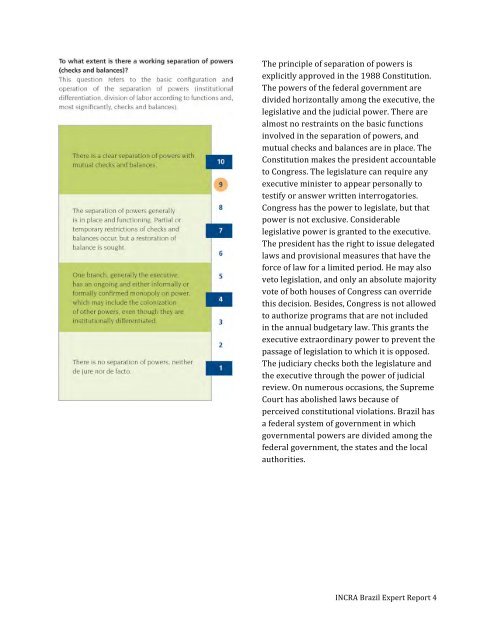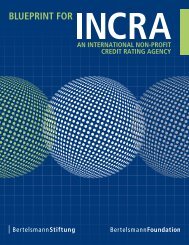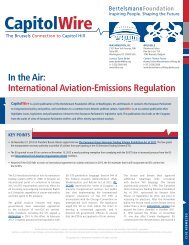Brazil Expert Report-1.pdf
Brazil Expert Report-1.pdf
Brazil Expert Report-1.pdf
You also want an ePaper? Increase the reach of your titles
YUMPU automatically turns print PDFs into web optimized ePapers that Google loves.
The principle of separation of powers is explicitly approved in the 1988 Constitution. The powers of the federal government are divided horizontally among the executive, the legislative and the judicial power. There are almost no restraints on the basic functions involved in the separation of powers, and mutual checks and balances are in place. The Constitution makes the president accountable to Congress. The legislature can require any executive minister to appear personally to testify or answer written interrogatories. Congress has the power to legislate, but that power is not exclusive. Considerable legislative power is granted to the executive. The president has the right to issue delegated laws and provisional measures that have the force of law for a limited period. He may also veto legislation, and only an absolute majority vote of both houses of Congress can override this decision. Besides, Congress is not allowed to authorize programs that are not included in the annual budgetary law. This grants the executive extraordinary power to prevent the passage of legislation to which it is opposed. The judiciary checks both the legislature and the executive through the power of judicial review. On numerous occasions, the Supreme Court has abolished laws because of perceived constitutional violations. <strong>Brazil</strong> has a federal system of government in which governmental powers are divided among the federal government, the states and the local authorities. INCRA <strong>Brazil</strong> <strong>Expert</strong> <strong>Report</strong> 4






